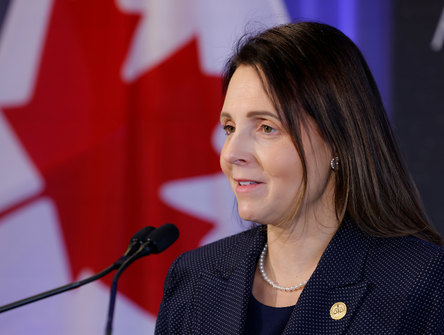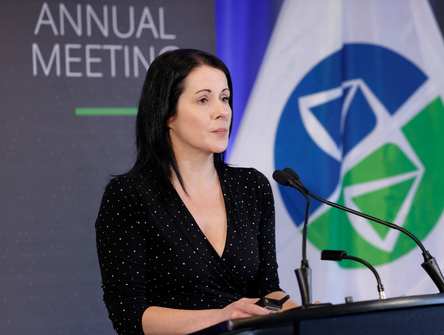Don't count on the Supreme Court
Why its upcoming ruling on the Safe Third Country Agreement is unlikely offer a solution to crossings at Roxham Road.

In early March, federal Immigration Minister Sean Fraser went to Washington to talk with his American counterparts about the problem of irregular migrants — not for the first time, probably not for the last.
Such meetings tend to be confidential, but it was plain that the Safe Third Country Agreement (STCA) — the pact between Canada and the U.S. on refugee claimants — was always going to top the agenda. Fraser’s government is under heavy pressure to get the Americans to amend the agreement in a way that would slow the flow of irregular migration through unofficial border crossings like the one at Roxham Road in Quebec.
Fraser is looking for a political solution. That might be the only kind available to him. No one working in immigration law really expects the Supreme Court of Canada to settle the country’s irregular migration problem when it rules on Canadian Council for Refugees, et al. v Minister of Citizenship and Immigration in the coming weeks or months.
The case was brought by refugee claimants who tried and failed to secure refugee status in Canada after experiencing roadblocks in their attempts to stay in the United States. The STCA states that refugee claimants who knock on Canada’s door after being turned away by the U.S. must be rejected because Canada considers the U.S. to be a “safe” country for refugees.
Predicting which way the Supreme Court will jump is never easy — especially when the stakes are as much political as they are legal. The court has the power to void the STCA, said Claudia Molina, a specialist in refugee and immigration law based in Montreal. Judging from the justices’ exchanges with counsel on the case, she’s betting it won’t.
“That’s my impression, based on the tone of the Supreme Court hearing, that the case will fail,” she said.
“It’s not the appeal court decision so much as the nature of the justices’ questions, how they’re approaching this. Their questioning has been quite hostile in tone. They’ve been interrupting, seeming impatient. They didn’t like the way the case had been presented.”
Neither did the Federal Court of Appeal (FCA). The refugee claimants argued that designating the U.S. a “safe” third country for migrants violated their Charter rights under sections 7 and 15.
The Federal Court agreed that the way the STCA is enforced violates s. 7 (life, liberty and security of person) due to the U.S.’ harsh migrant detention practices. It concluded that the agreement is unconstitutional. Having voided the STCA, it decided a ruling on s. 15 (equality rights) would be moot.
The federal government appealed. In its decision granting the appeal and dismissing the applications for judicial review, the Federal Court of Appeal (FCA) concluded the Council for Refugees and its co-claimants chose the wrong target for their challenge of the STCA.
The STCA had already survived a constitutional challenge back in 2008, when the FCA upheld the agreement by concluding that the public interest groups behind the challenge didn’t have standing. This time, the appeal court ruled that the lower court erred in treating the STCA as an entity separate from a legislative scheme designed to implement the agreement — and the claimants should have targeted the review mechanism in the law that’s supposed to ensure the U.S. remains a “safe country” for migrants.
The FCA ruling infuriated a lot of people working in refugee law. “Its approach wasn’t just unusual. It was arrogant,” said Barbara Jackman of Jackman and Associates.
“Telling experienced counsel how to frame a Charter challenge? The whole decision just maintains that tone and never addresses the constitutional issue. It just ignores the arguments and substitutes its own. It refused to deal with the circumstances of the individuals involved.”
“My reaction? Shock,” said Robert Blanshay of Blanshay Law. “I really thought it would go our way. Even after copious evidence and explanation of the profound flaws in the system, the judges just stood behind the government lawyers.”
The FCA decision defies common sense, the Canadian Council for Refugees argued in its response to the appeal court decision.
Section 102(a) of the Immigration and Refugee Protection Act requires that the federal government conduct regular reviews of conditions for migrants in the U.S. as a condition of maintaining the safe third country designation. The FCA concluded that the 102(a) reviews should have been the focus of the constitutional challenge — not the STCA, which is a diplomatic agreement.
“The purpose of s. 102(3) is to ensure that GIC” — the governor in council, essentially the federal cabinet — “remains in a position to reconsider the designation ‘should the evolution of the factors so require,’” the council wrote in its factum replying to the FCA ruling.
“However, the GIC delegated the review obligation to the Minister of Immigration, and has not received a report on the designation of the U.S. as a ‘safe third country’ since 2009.”
Jackman said she suspects the Supreme Court’s eventual ruling will reflect a once-bitten-twice-shy reluctance to engage in matters of policy and politics.
“After the Singh decision in 1985,” she said — referring to Singh v. Canada, which saw the court endorse a section 7 argument in a case involving refugees — “the backlog went up to 20,000 cases and people were criticizing the SCC for not anticipating the consequences of that decision.
“I think the court heard those criticisms. I think the justices are aware of the politics here.”
The FCA decision also pointed to a dismal trend in Charter law, said Roxana Parsa, a staff lawyer with the Women’s Legal Education and Action Fund (LEAF) — a growing tendency to downplay arguments that don’t engage section 7.
Both the Federal Court and the Federal Court of Appeal declined to hear the section 15 arguments; the FCA’s decision says the court can abandon any issue it considers unnecessary to the outcome. Parsa said that amounts to creating a “hierarchy of rights under which s. 7 is the only section that matters.”
“By ignoring the s. 15 argument, the courts are undermining the Charter,” she added (LEAF was an intervener in the case). “Both courts ignored it, despite the preponderance of evidence before them engaging s. 15.
“The courts had an opportunity here to say something about s. 15 in this case and they chose not to do so. The principle of judicial restraint should not encourage courts to treat one class of rights as if it’s more important than others.”


